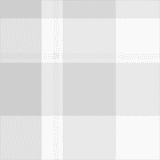Return-to-Play Protocols
Phoenix, AZ, Area
One-on-One Physical Therapy Care in Your Home
Same-Day Appointment Availability
Package Discounts Available
Request Appointment
Hero Request Form
Thank you for contacting us.
We will get back to you as soon as possible.
Please try again later.
Comprehensive Return-to-Play Protocols for Athletes
At Onofray Physical Therapy, we understand the importance of a safe and effective return to sports after an injury. Our specialized return-to-play protocols are designed to help athletes regain their strength, mobility, and confidence. We offer personalized care tailored to your specific needs, whether you're a professional athlete or a weekend warrior. Our services include:
- One-on-one therapy sessions in your home
- Same-day appointments
- Mobile physical therapy
- Package discounts
- Dry needling and cupping techniques
Contact OPT today to start your journey back to peak performance.
Signs You Need a Return-to-Play Assessment
Recognizing when you're ready to return to your sport is crucial for preventing re-injury and ensuring optimal performance. OPT's experienced therapists can help you determine if you're prepared to get back in the game. Here are some indicators that you might benefit from our return-to-play protocols:
- Recent recovery from a sports-related injury
- Lingering pain or discomfort during activity
- Decreased performance or endurance
- Uncertainty about your readiness to compete
- Desire to prevent future injuries
- Need for sport-specific conditioning
If you're experiencing any of these signs, reach out to OPT for a comprehensive evaluation.
The Importance of Professional Return-to-Play Guidance
Returning to sports without proper assessment and preparation can lead to setbacks and potential re-injury. OPT's return-to-play protocols offer numerous benefits:
- Personalized treatment plans
- Evidence-based rehabilitation techniques
- Sport-specific training and assessments
- Injury prevention strategies
- Confidence-building exercises
- Gradual progression to full activity
Don't leave your athletic future to chance. Contact OPT to ensure a safe and successful return to your sport.
Expert Care from Experienced Professionals
When you choose OPT for your return-to-play needs, you're selecting a team of dedicated professionals with a wealth of experience. Our therapists bring decades of industry knowledge to every treatment session. Benefits of working with OPT include:
- 20 years of experience from Megan Onofray
- Eight years of expertise from Avery Griff
- Certification in dry needling and cupping techniques
- Training in Titleist Golf assessments
- LSVT Parkinson's disease program certification
- CPR certification through the American Red Cross
Experience the difference that expert care can make in your recovery. Reach out to OPT today.
Start Your Return-to-Play Journey With OPT
Don't let injury keep you on the sidelines any longer than necessary. OPT's return-to-play protocols are designed to get you back to your sport safely and effectively. Our patient-focused approach, combined with our mobile services and flexible scheduling, makes it easy to receive the care you need. Contact OPT to schedule your assessment and take the first step towards a successful return to play.
- Bullet text
- Bullet text
- Bullet text
- Bullet text
- Bullet text
- Bullet text
- Bullet text
- Bullet text
- Bullet text
- Bullet text
What is a return to play (RTP) protocol?
An RTP protocol is a structured, step-by-step plan that guides an athlete’s safe return to sport after an injury. It ensures physical, functional, and psychological readiness to reduce the risk of re-injury.
Why are RTP protocols important?
They help:
- Prevent re-injury
- Ensure full recovery of strength, mobility, and function
- Build confidence in the injured area
- Provide a clear, evidence-based path back to competition
What are the typical stages of an RTP protocol?
- Medical clearance from a healthcare provider
- Functional testing (strength, balance, agility, etc.)
- Graduated exercise program tailored to the sport
- Controlled practice without contact
- Full-contact practice under supervision
- Return to competition once all criteria are met
Gallery Heading H2
Reviews

Same-Day Appointments
Book Your Appointment Now

